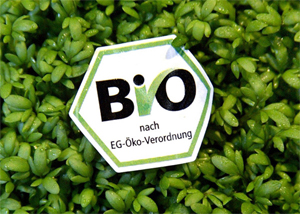 Following scandals over falsely labeled organic meat, Germany wants the EU to set up a database of certified organic produce suppliers. Those in favor say such a system will provide greater transparency for consumers.
Following scandals over falsely labeled organic meat, Germany wants the EU to set up a database of certified organic produce suppliers. Those in favor say such a system will provide greater transparency for consumers.
In an effort to curb fraudulent abuse of organic labels, the German government is calling on the European Commission to set up a Europe-wide database of certified organic producers.
The database would be used to crack down on agents who have been using organic labels to sell conventional meat more expensively. Organic regulators would be obliged to immediately register any producer that failed a check.
“In case they withdraw a certificate, inspectors of organic food producers would immediately have to update the data base”, Wolfgang Reimer, in charge of organic agriculture at Germany’s Federal Agricultural Ministry, told the TAZ newspaper.
Data sharing is vital
Currently, databases are not “compulsory” and not all inspectors share their data.
Private inspectors are commissioned by state authorities to check whether organic food producers stick to the European Union’s regulations governing organic produce. Among other things, the rules require farmers to abstain from using many conventional pesticides as well as mineral fertilizers.
Only if farmers adhere to these rules can they obtain organic certification. Yet these paper certificates are relatively easy to forge, and there have been several cases of fraud in recent months surrounding labeling of organic produce.
In September, a German poultry farmer from the Western town of Delbrueck was tried for mixing conventional meat with expensive organic meat.
The new system proposed by Germany’s Agriculture Ministry would allow supermarket chains to check whether their suppliers were still certified to deliver organic produce.
No license, no business
In a recent cross-border case, Italian pig farmer Paolo Zaccardi continued using copies of his old certificate even after the authorities had withdrawn the license. Using false documents he was able to sell cheap conventional meat to German customers as high-quality organic food, which earned him at least one million euros.
“We’ve asked the European Commission to intervene in Italy”, Wolfgang Reimer told the TAZ, adding that pressure needed to be intensified on Italian authorities to solve the issue.